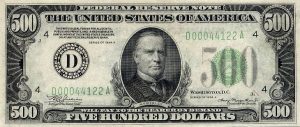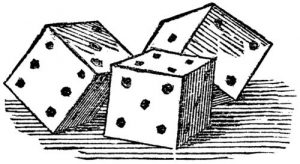The Tournament
40 people max sign up. Each player must have signed up on line- 1 seat per person. Sign up HERE.
First Round: (Regular House Farkle Rules)
40 players
10 Tables of 4
Play to 10,000 plus
Drink Beer, Have Fun
Top 32 scores (total score) are kept to move on to Round Two
Round Two: (Progressive House Farkle Rules)
32 Players are split up amongst 8 tables
Progressive rules (see below)
Play to 10,000
Drink Beer, Have Fun
At the end of the game- the number 1 and number 2 from each table will proceed to Round 3
Round Three: (Regular House Farkle Rules)
16 Players are randomly placed at 4 tables
Play to 10,000
Drink Beer, Have Fun
The “winner” from each table will advance to the final table of four for the Final Round
Final Round:
4 Players
Play to 10,000
Drink Beer, Have Fun
Management may at any time, institute Progressive rules during this match
The Winner will receive $500 cash

Mayor House Farkle Rules
Farkle is played by two or more players, with each player in succession having a turn at throwing the dice. Each player’s turn results in a score, and the scores for each player accumulate to some winning total (usually 10,000).
- At the beginning of each turn, the player throws all the dice at once.
- After each throw, one or more scoring dice must be set aside (see sections on scoring below).
- A player must get to 500 in order to “get on the board”- After a player gets on the board, they can bank any amount on future rolls.
- The player may then either end their turn and bank the score accumulated so far, or continue to throw the remaining dice.
- If the player has scored all six dice, they have “hot dice” and may continue their turn with a new throw of all six dice, adding to the score they have already accumulated. There is no limit to the number of “hot dice” a player may roll in one turn.
- If none of the dice score in any given throw, the player has “farkled” and all points for that turn are lost.
- At the end of the player’s turn, the dice are handed to the next player in succession (usually in clockwise rotation), and they have their turn.
Once a player has achieved a winning point total, each other player has one last turn to score enough points to surpass that high-score.
Standard scoring
The following scores for single dice or combinations of dice are widely established, in that they are common to all or nearly all of the above-cited descriptions of farkle scoring.
| Dice combination | Score |
| Each 1 | 100 |
| Each 5 | 50 |
| Three 1s | 1000 |
| Three 2s | 200 |
| Three 3s | 300 |
| Three 4s | 400 |
| Three 5s | 500 |
| Three 6s | 600 |
For example, if a player throws 1-2-3-3-3-5, they could do any of the following:
- score three 3s as 300 and then throw the remaining three dice
- score the single 1 as 100 and then throw the remaining five dice
- score the single 5 as 50 and then throw the remaining five dice
- score three 3s, the single 1, and the single 5 for a total of 450 and then throw the remaining die
- score three 3s, the single 1, and the single 5 for a total of 450 and stop, banking 450 points in that turn
This is not an exhaustive list of plays based on that throw, but it covers the most likely ones. If the player continues throwing, as in any of the above cases except the last, they risk farkling and thus losing all accumulated points. On the other hand, if they score five dice and have only one die to throw, they have a 1 in 3 chance of scoring a single 1 or a single 5, and then having scored all six dice they will have “hot dice” and can throw all six dice again to further increase their score.
Each scoring combination must be achieved in a single throw. For example, if a player has already set aside two individual 1s and then throws a third with the four dice remaining, they do not have a triplet of 1s for a score of 1000 but merely three individual 1s for a score of 300.
| Dice value | 3 of a kind | Set value | ||||
| 4 of a kind | 5 of a kind | 6 of a kind | ||||
| Two | 200 | 1000 | 2000 | 3000 | ||
| Three | 300 | |||||
| Four | 400 | |||||
| Five | 500 | |||||
| Six | 600 | |||||
| One (high) | 1000 | |||||
Straight 1-6 = 1500
Three Pair = 1500
Two Triplets = 2500
Progressive House Farkle Rules
Progressive Farkle is very similar to regular Farkle. Progessive Farkle is usually done to speed up game play. It adds a level of strategy that can be described as “defensive”, making a player more aware of their score and VERY aware of the number of dice that they are passing on to the next player.
In Progressive Farkle, players are allowed to build on the score of the player’s banked score before them. If player A rolls and ends up banking a score of 1600 points using 4 of their dice (the dice that they have set aside to achieve the score), they would say “Bank 1600 with TWO to pass”. They would then pick up the TWO dice that are not scorers and set them in front of the person that is to roll next
This tells the score keeper that they are banking their points and that they are passing the remaining two dice to the next player. The next player may either pick up the 2 dice in front of them (plus the other 4 set aside), all six dice and roll them (for which they would be starting at zero for that roll)
OR,
they can roll the two dice that were passed to them. If they roll a “Scorer”, they then add that on to the 1600 that was passed to them.
Lets say player A had 1600 and passed two dice. Player B rolls and gets a 5. Player B may now bank 1650 and pass 1 dice to the next player or, they can pick up the last dice and keep rolling. Nothing that player B does affects the banked score of A. A does not lose points but B may build on A’s score.
If B decided to Bank the 1650, they would say “Bank 1650, Passing ONE die”. Player C could then, pick up all six dice and start over or pick up the one dice that B passed them and try to add on. If C rolled a scorer (lets say a 1), then all 6 dice are scorers or “Hot Dice” and C can continue on. They would have all 6 dice and a score of 1750. B would still have 1650 and A would still have the 1600.
It is very regular game play except for the transfer of dice and the starting score of the active dice.
You can see now that the more dice you pass to the next person increases their chances of building on your score- so, people are cautioned to be aware and sometimes encouraged to take another roll just to reduce the chances of the next player.

2018 Winner- The final table decided to split the winnings!
